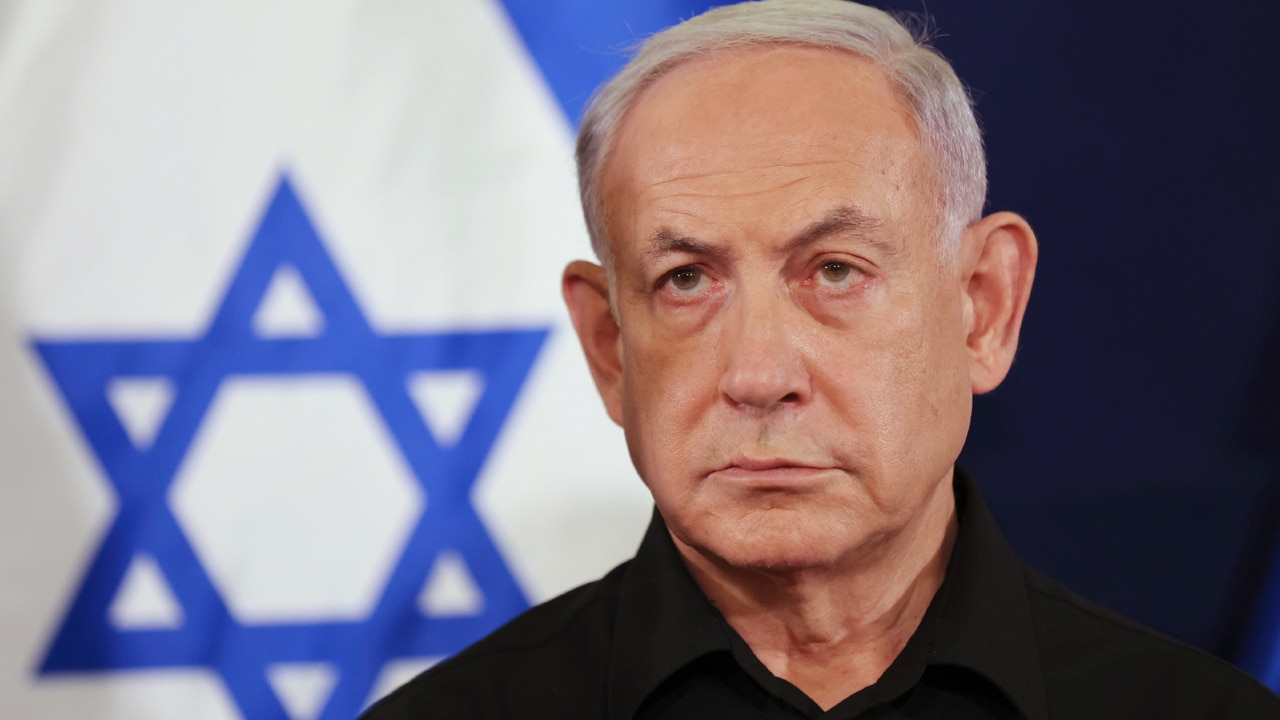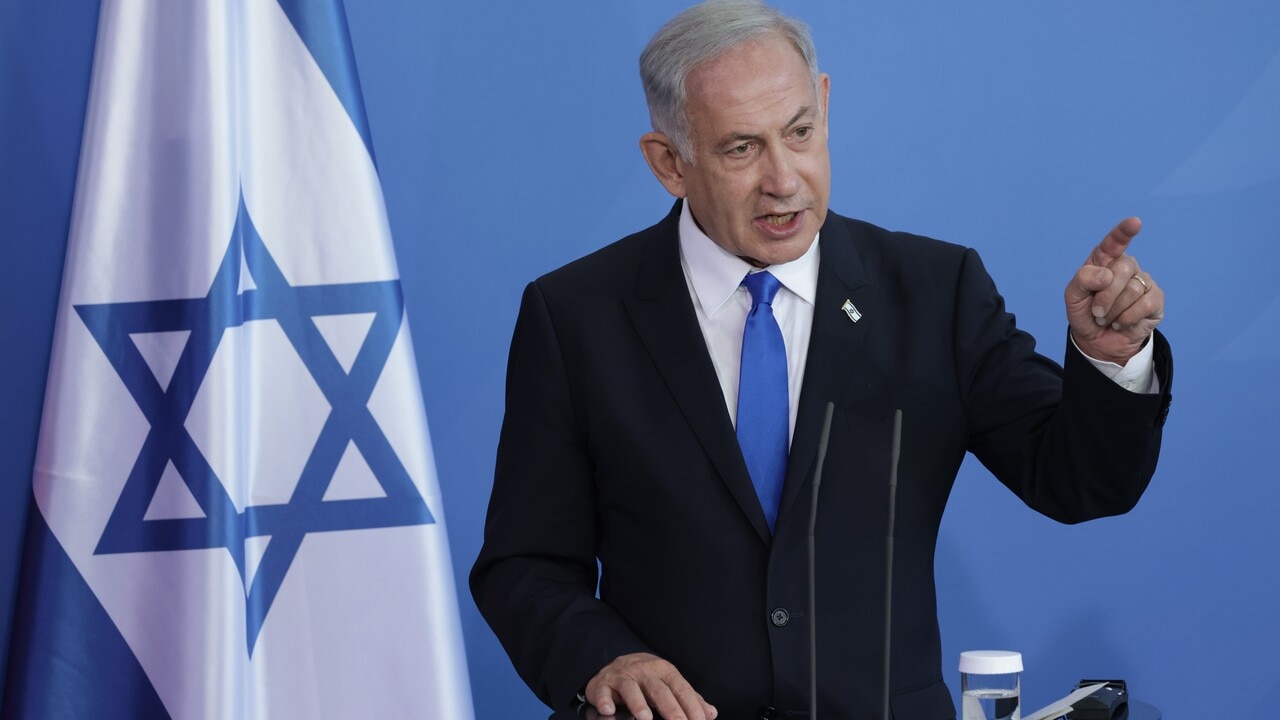What happens next depends on the choices of Hezbollah and its paymasters in Iran


And we should remember that, tragic as this war is for innocent Lebanese, Israel is not the aggressor here. Since October, Hezbollah has fired something like 9000 rockets and other projectiles at Israel. On any measure that constitutes an act of war, and Israel is entitled to retaliate and to attempt to suppress such military action.
But at a deeper level Israel is trying to reshape its medium-term strategic environment, and it is doing this by posing hard questions to Hezbollah, to Iran and to the Biden administration in Washington.
Israel’s proposition to Hezbollah is this. The status quo, of continuous mid-level attacks by Hezbollah on the northern part of Israel, accompanied by the growing threat of a Hamas-style murderous incursion across the border, is no longer acceptable to Jerusalem.
So Hezbollah has three choices. Does it run through some kind of military response to Israel but move back fairly quickly to the semi-stable, long-term ceasefire that it has often enough mostly observed in the past, but keeping its concentration of fighters a bit further away from Israel’s border (as it was supposed to but never did under a previous international agreement)? This is what most Lebanese citizens would prefer. Military conflict stops under that choice.
The second choice is: does it continue to endure sustained aerial bombardment from Israel while maintaining enough of a response to stop Israel from desisting? This may seem extremely unlikely and unattractive but it has two potential bases of appeal to Hezbollah. One is that it prolongs the Israeli operation. This entails huge suffering by the Lebanese but Israel would increasingly be criticised internationally. Hamas thought this international criticism of Israel worth sacrificing tens of thousands of Palestinian lives for.

The other appeal for Hezbollah of this course is that it allows Hezbollah to paint itself as the continuing, heroic spear of “resistance” to Israel. This grants it prestige among that large group in the Middle East, and indeed the West, which hates Israel, and will also ensure lavish continuing support from Iran.
The third choice for Hezbollah is to try to launch an all-out war against Israel. It has tens of thousands of fighters and something like 150,000 rockets and missiles. Before these latest actions, military analysts thought it could launch 3000 missiles a day against Israel. That must be significantly degraded by now.
Hezbollah would lose such a war, and likely there would be massive devastation of Lebanon, but it would also inflict great damage on Israel. Hezbollah would hope, as Hamas hoped before it, that other anti-Israel forces, from the Houthis in Yemen to Shi’ite militias in Iraq and Syria, and perhaps Iran itself, would join in.
Israel is also posing a question to Iran. Tehran ultimately funds and controls Hezbollah. Israel is asking Iran whether it wants to see Hezbollah destroyed, at least temporarily, as a military force, which would severely weaken Iran’s overall strategic position.
It’s also asking Iran whether Iran wants to join in a war against Israel. This would be a very bloody affair. But the US has substantial naval assets in the region. If Iran attacks Israel, US naval and air forces would support Israel. There would be no US boots on the ground but the US would likely fire on Iran. Israel itself has a vastly more sophisticated air force than Iran does.

In such a war, Israel would certainly attack Iran’s nuclear facilities. Israel would likely suffer great losses itself in such a war, but the losses for Iran would be disproportionate.
It could well lose not only its nuclear facilities but a good deal of economic infrastructure. The Iranian people in large numbers detest their government, not least because it has failed to deliver a good life, normal human freedoms or economic prosperity. A devastating war could have absolutely unpredictable political consequences within Iran.
It’s likely that Hamas struck at Israel last October, with Iran’s approval, mainly to derail the approaching peace agreement between Israel and Saudi Arabia. If that was a core objective of Iran’s, it has been achieved. It’s hard to see what more Iran gets out of a war now with Israel, which, especially if America gets involved, it would surely lose.
The fact that objective factors would indicate that all-out war is not in the interests of either Hezbollah or Iran doesn’t guarantee there won’t be war. Almost all wars involve mistaken calculations by one or more parties at the start. Leaders, especially intensely ideological dictators, can be captured by their own rhetoric, or more often perhaps deluded by their own rhetoric.
Which leaves the questions Israel is also posing for the Biden administration. If Donald Trump wins the presidency, Israel would feel it’s likely to be better supported by Washington than if Harris wins. Certainly, Trump would be glad if Israel rearranged the furniture before he arrived.
But Israel is also taking action with a view to the possibility that Harris might win. Biden, for all his weakness, is instinctively a much stronger supporter of Israel than Harris, or her vice-presidential running mate, Tim Walz, are.
If there must be a war, Israel’s strategic planners probably calculate, better that it happen, or at least get started, while Biden is president rather than Harris. She will have to endorse whatever support Biden gives to Israel, especially any military support.
Israel would hope that creates a momentum of support which effectively locks Harris in to whatever degree of support, especially military support, Biden gives to Israel.
And of course Israel must answer its own questions: how much change does it think it can secure in Lebanon, and what price is it ultimately prepared to pay? A ground operation?
We don’t know how all these actors will answer all these questions, and how those answers will interact with each other. The next couple of weeks could well shape the Middle East strategic environment for a long time to come.



The immediate objective of Israel’s dramatic escalation of the conflict in southern Lebanon is to create conditions in its northern towns and villages, near to Lebanon, to the point where Israeli residents can move back to their homes with some security.